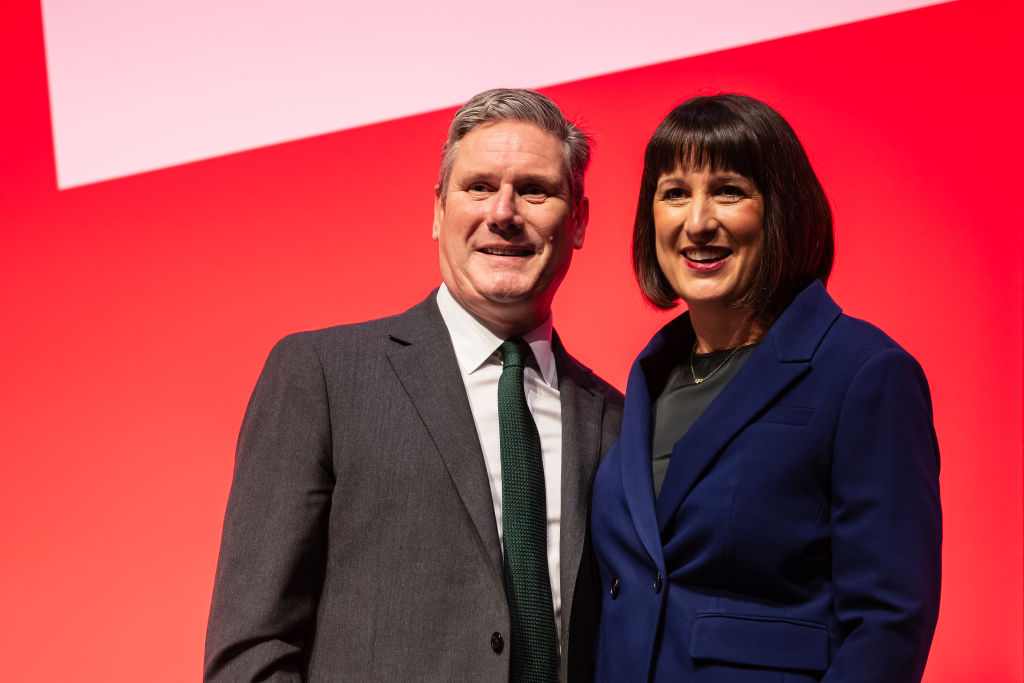Who to blame for the demise of Labour’s £28 billion annual green investment pledge? According to Keir Starmer, it’s the Conservatives. He said this afternoon: ‘What would be really irresponsible is to know the damage done to the economy by this failed government and ignore that and pretend it didn’t happen.’ The party briefing is that because the Conservatives have crashed the economy and Jeremy Hunt plans to ‘max out’ the country’s credit card, the £28 billion is now unaffordable.
A quick way to set fire to voters’ trust in you is to drop your fiscal rules as soon as they don’t feel very fun. Within the party, there is a debate about whether Ed Miliband or Rachel Reeves is to blame. Miliband, as shadow energy secretary, is accused of pushing so hard for it in the first place. The charge against Reeves is that she has exerted so much power that the party is failing to look remotely ambitious about the future. Those who blame Miliband are, interestingly, not particularly malign towards him: they just think he’s very good at working hard and making the (wrong) case for (wrong) policies. Those who blame Reeves think that Labour doesn’t need to be so cautious about its economic credibility when the Conservatives have burnt theirs.
A third school of thought, that largely hails from the grandee wing of the party, is that while Keir Starmer is ruthless enough to change the Labour party, he still doesn’t really know what he personally believes. That’s why the shadow frontbench has spent the past few weeks in a weird public liveblog about what it thinks about whether the £28 billion should stay or go. Starmer hasn’t exerted control over colleagues in the way he does when it comes to internal party matters, for the simple reason that he doesn’t know what he wants to control.
The political impact of this mess is that Labour is now leading the news agenda with a U-turn that it has spent far too much time ruminating on in public. So far this week, Rishi Sunak has tripped over his own shoelaces twice, and yet the opposition has not been able to feast on this properly because it has had to decide what it’s going to do ahead of the deadline for its manifesto.
As for what it has decided, it is this: the Warm Homes insulation plan will have a ‘slower initial roll out than we had hoped to deliver’ where up to five million homes will be upgraded to above an energy performance certificate rating of C by 2035. Great British Energy will be set up at a cost of £8.3 billion, headquartered in Scotland, and will invest in energy across the country, and in partnership with the private sector. There will be a local power plan for putting up wind turbines, solar panels and other low carbon power sources, as well as national wealth fund worth £7.3 billion to invest in steel, upgrading ports, gigafactories, industrial hubs and hydrogen. And there will be a ‘British Jobs Bonus’ costing £500 million a year for clean energy developers who ‘invest in good jobs and supply chains’ in Britain’s ‘industrial heartlands and coastal communities’. The windfall tax on oil and gas companies will be a ‘proper’ one, fixing holes in the existing Energy Profits Levy to raise £10.8 billion over five years from 2024.
Starmer has chosen to scale the green spending pledge back so that he can attack the government on the economy in the same way as the Conservatives did back in 2010. When they came into government, they cancelled projects and cut spending with the justification that Labour had left a ‘black hole’ in the economy, one that was bigger than they had thought before the election. The ‘I’m afraid there is no money’ note and the state of the economy haunted Labour for years in opposition. Starmer wants to be able to return the favour now.







Comments